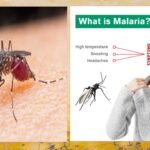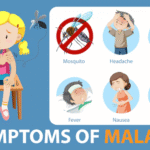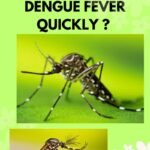What Not to Eat During Dengue Fever | Foods to Avoid for Faster Recovery
Dengue fever is a serious viral infection caused by the Aedes aegypti mosquito, leading to high fever, low platelet count, dehydration, and severe weakness. While proper treatment and a nutritious diet are vital for recovery, knowing which foods to avoid during dengue fever is equally important.
Some foods can worsen symptoms, cause indigestion, or slow down recovery. In this blog, we’ll explore which foods are harmful during dengue fever and why avoiding them can help you heal faster.

✅ Why Should You Avoid Certain Foods in Dengue Fever?
During dengue fever, the body is indeed prone to several complications due to the weakened immune system. Some potential issues include:
Potential Complications
- Severe dehydration: Dengue fever can cause significant fluid loss, leading to dehydration.
- Low platelet count: Dengue fever can cause a drop in platelet count, which can increase the risk of bleeding.
- Digestive problems: Dengue fever can cause symptoms like nausea, vomiting, and diarrhea.
- Liver stress: Dengue fever can cause liver damage and stress.
Importance of Medical Care
- Seek medical attention: If symptoms worsen or you experience severe symptoms, seek medical attention immediately.
- Follow-up care: Regular follow-up appointments with your doctor can help monitor your progress and prevent complications.
Self-Care
- Stay hydrated: Drink plenty of fluids to prevent dehydration.
- Rest: Get plenty of rest to help your body recover.
- Nutritious diet: Eat a balanced diet to support your immune system.
By taking these precautions and seeking medical care when needed, you can help manage symptoms and support your recovery during dengue fever.
Certain foods can:
❌ Increase inflammation
❌ Dehydrate the body further
❌ Stress the digestive system
❌ Slow down platelet regeneration
❌ Increase risk of complications
Thus, avoiding harmful foods is crucial for a smooth and quick recovery.
——————————————————————–
🚫 Foods to Avoid During Dengue Fever
1. Oily & Fried Foods
- Difficult to digest & can cause acidity.
- Increase cholesterol levels, burdening the liver.
- Examples: Samosa, Pakoras, Chips, Fried chicken.
2. Spicy and Heavy Meals
- Can irritate the stomach lining.
- Lead to bloating, indigestion, and acidity.
- Avoid spicy curries, pickles, and rich gravies.
3. Caffeinated Beverages
- Tea, coffee, and energy drinks cause dehydration.
- They also increase heart rate and may worsen weakness.
- Prefer herbal teas and water-based drinks instead.
4. Carbonated & Sugary Soft Drinks
- High sugar content can spike blood sugar levels.
- Fizz causes bloating and acidity.
- Empty calories with no nutritional value.
5. Processed & Junk Foods
- Contain preservatives, artificial colors, and unhealthy fats.
- Stress the liver and weaken immunity further.
- Examples: Burgers, Pizzas, Instant noodles, Packaged snacks.
6. Red Meat & Heavy Proteins
- Difficult to digest during viral infections.
- Can cause constipation and indigestion.
- Instead, opt for light proteins like lentils, paneer, and eggs.
7. Dairy Products (in excess)
- Full-fat milk, cheese, and cream can cause bloating.
- May trigger mucus formation, worsening fever symptoms.
- Prefer low-fat curd or buttermilk in moderation.
8. Foods High in Iron (in uncontrolled quantity)
- Overconsumption of iron-rich foods can stress the liver.
- Iron supplements should only be taken under doctor’s advice.
9. Bakery & Confectionery Items
- Cakes, pastries, and cookies are high in sugar and trans fats.
- Offer no immune benefits and slow recovery.
10. Alcohol & Smoking
- Alcohol severely dehydrates the body.
- Both alcohol and tobacco lower immunity and slow platelet production.
- Strictly avoid during dengue and recovery phase.
✅ Quick List of Foods to Avoid During Dengue Fever:
Here’s a quick list of foods to avoid during dengue fever:
Foods to Avoid
- Fried foods: Pakoras, chips, and other fried snacks can be hard to digest.
- Spicy foods: Spicy curries, pickles, and other spicy foods can irritate the stomach.
- Caffeinated drinks: Tea, coffee, and energy drinks can dehydrate the body.
- Soft drinks and packaged juices: These can be high in sugar and artificial ingredients.
- Heavy or rich foods: Burgers, pizzas, noodles, and other heavy foods can be difficult to digest.
- Red meat and sausages: These can be hard to digest and may exacerbate symptoms.
- Full-fat dairy products: These can be difficult to digest and may worsen symptoms.
- Sweets and chocolates: Cakes, sweets, and chocolates can be high in sugar and low in essential nutrients.
- Alcohol and tobacco: These can dehydrate the body and worsen symptoms.
Why Avoid These Foods?
- Digestive issues: These foods can irritate the stomach and worsen digestive issues.
- Dehydration: Caffeinated and sugary drinks can dehydrate the body.
- Nutrient imbalance: Avoiding nutrient-dense foods can lead to nutrient deficiencies.
Opt for Easy-to-Digest Foods
- Fresh fruits: Bananas, apples, and other easy-to-digest fruits.
- Clear broths: Chicken or vegetable broth can help replenish fluids.
- Plain toast: Easy to digest and can help settle the stomach.
- Hydrating foods: Coconut water, watermelon, and other hydrating foods can help replenish fluids.
By avoiding these foods, you can help manage symptoms and support recovery during dengue fever.

🚫 “What NOT to Eat During Dengue Fever”
What Not to Eat During Dengue Fever What Not to Eat During Dengue Fever What Not to Eat During Dengue Feve What Not to Eat During Dengue Fever What Not to Eat During Dengue Fever What Not to Eat During Dengue Fever What Not to Eat During Dengue Fever
**********************************************************************************
✅ What to Eat Instead? (Safer Alternatives)
| Avoid This | Choose This Instead |
|---|---|
| Fried snacks | Steamed veggies, khichdi |
| Spicy gravies | Light dal soups |
| Soft drinks | Coconut water, ORS |
| Junk foods | Fresh fruits (papaya, pomegranate) |
| Full-fat milk | Low-fat curd, buttermilk |
| Red meat | Moong dal, paneer, soft eggs |
| Caffeine | Herbal teas (Tulsi, ginger) |
| Alcohol | Fresh lemon water, juices |
✅ Additional Tips for Dengue Recovery:
Here are some additional tips for dengue recovery:
Dietary Tips
- Eat small, light, and frequent meals: This can help manage digestive issues and maintain energy levels.
- Choose easy-to-digest foods: Opt for foods that are gentle on the stomach, such as bananas, rice, applesauce, and toast.
Hydration Tips
- Stay well-hydrated: Drink plenty of water, ORS (Oral Rehydration Solution), and coconut water to replenish fluids and electrolytes.
- Monitor urine output: Ensure you’re urinating regularly and that your urine is pale yellow or clear.
General Tips
- Maintain high food hygiene: Avoid secondary infections by maintaining good hygiene practices, such as washing hands frequently.
- Rest adequately: Get plenty of rest to help your body recover.
- Follow medical advice: Adhere to your doctor’s instructions and take prescribed medications as directed.
- Monitor platelet count: Regularly check your platelet count to ensure it’s recovering.
Importance of Medical Care
- Seek medical attention: If symptoms worsen or you experience severe symptoms, seek medical attention immediately.
- Follow-up appointments: Attend follow-up appointments with your doctor to monitor your progress.
By following these tips, you can help support your recovery and manage symptoms during dengue fever.

———————————————————————–
✅ Conclusion
Avoiding harmful foods during dengue fever is essential for faster recovery. Foods that are oily, spicy, processed, or dehydrating can worsen symptoms and slow down healing. A simple, nutritious, and hydrating diet, combined with rest and proper care, can help you overcome dengue more effectively.
What Not to Eat During Dengue Fever What Not to Eat During Dengue Fever What Not to Eat During Dengue Fever What Not to Eat During Dengue Fever
**********************************************************************************
https://www.narayanahealth.org/blog/food-diet-for-dengue-patients
https://pram123.com/dengue-diet-what-to-eat-for-dengue-fever-best-foods/
++++++++++++++++++++++++++++++++++++++++++++++++++++++++++++++++++++++++












[…] to Reduce Dengue Fever […]